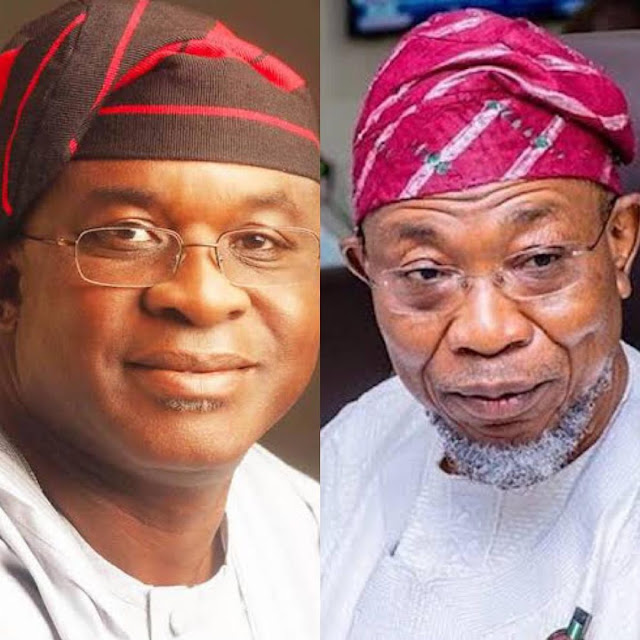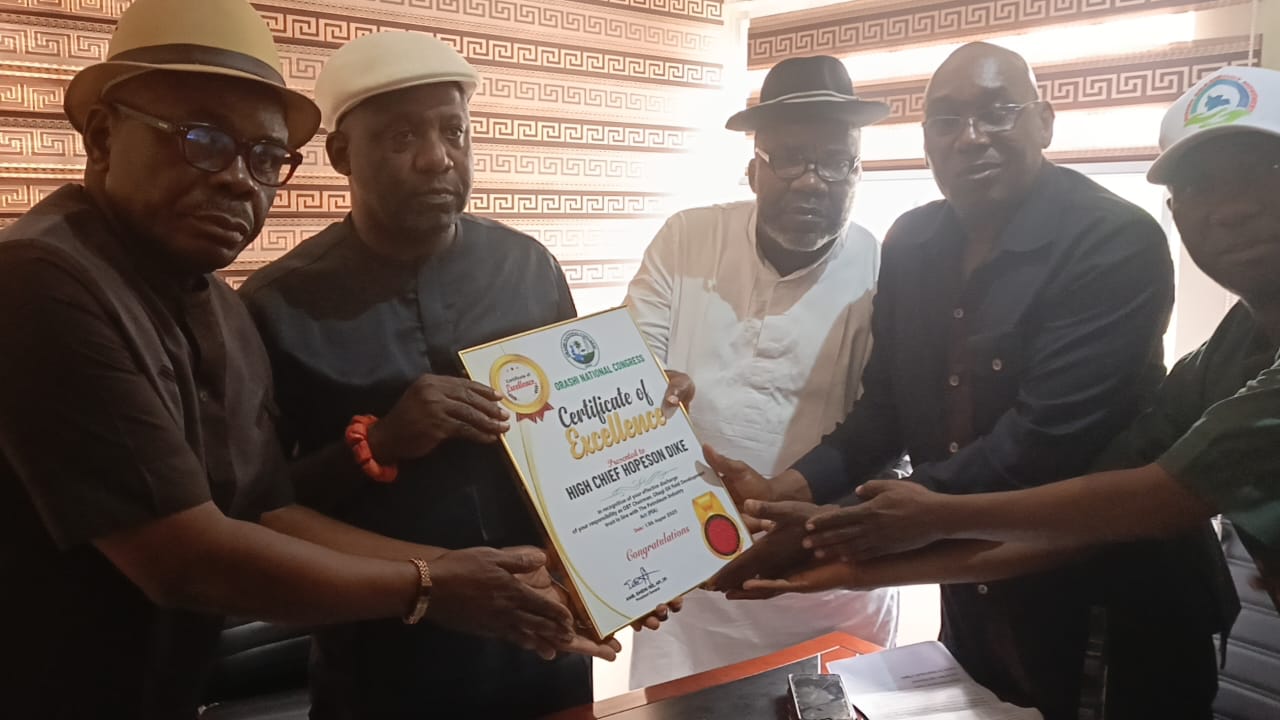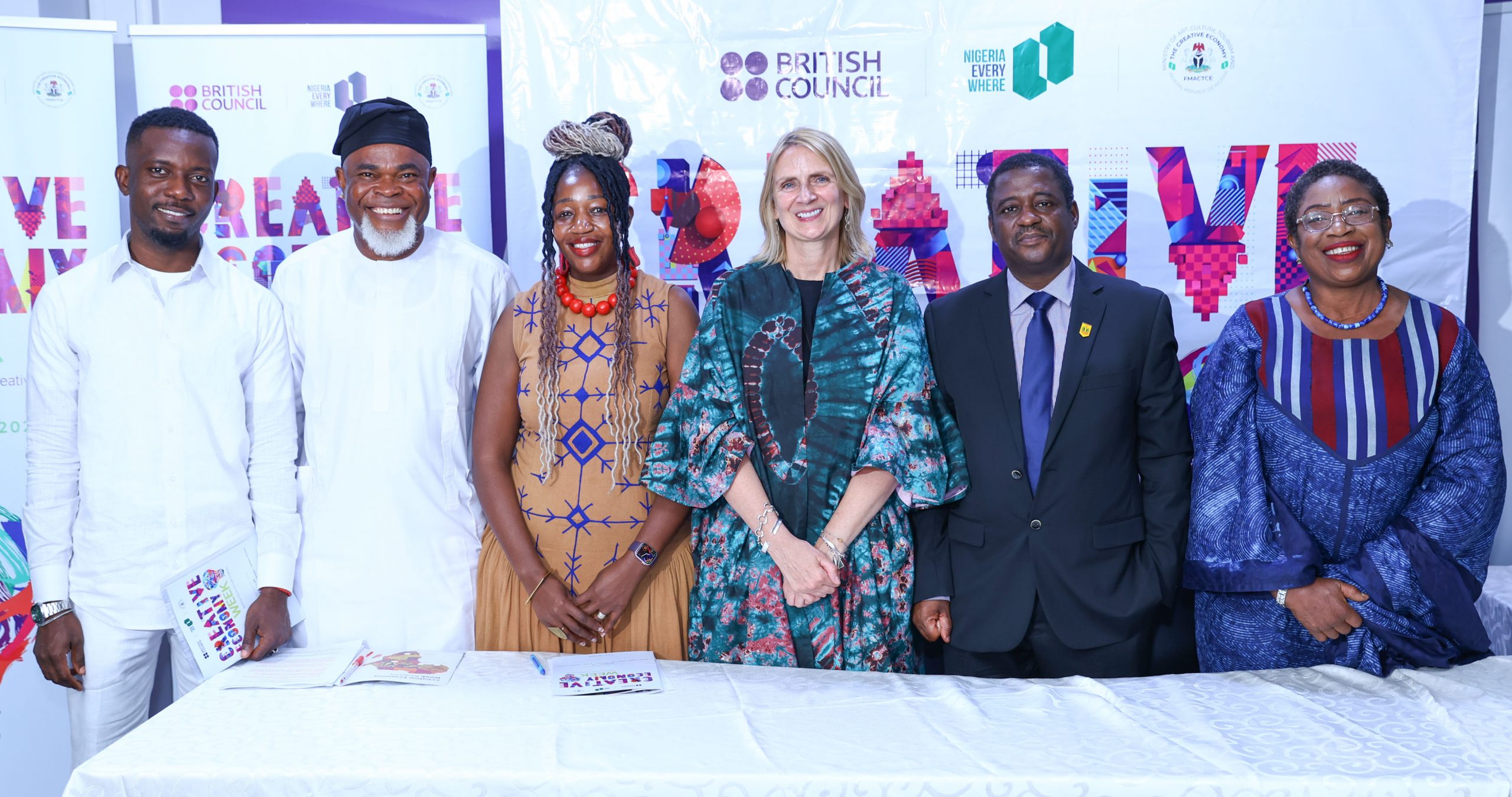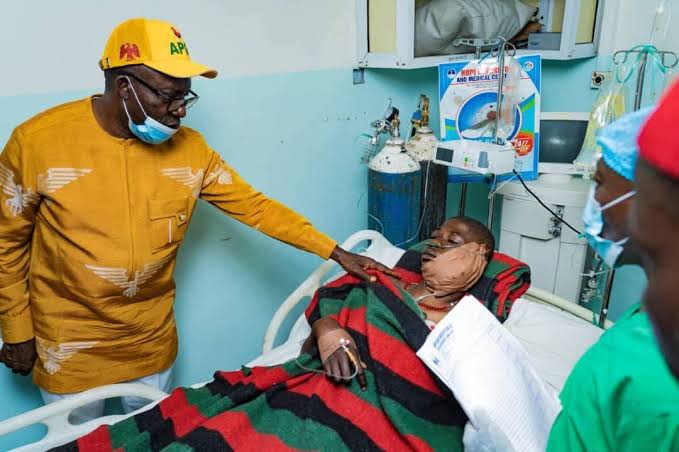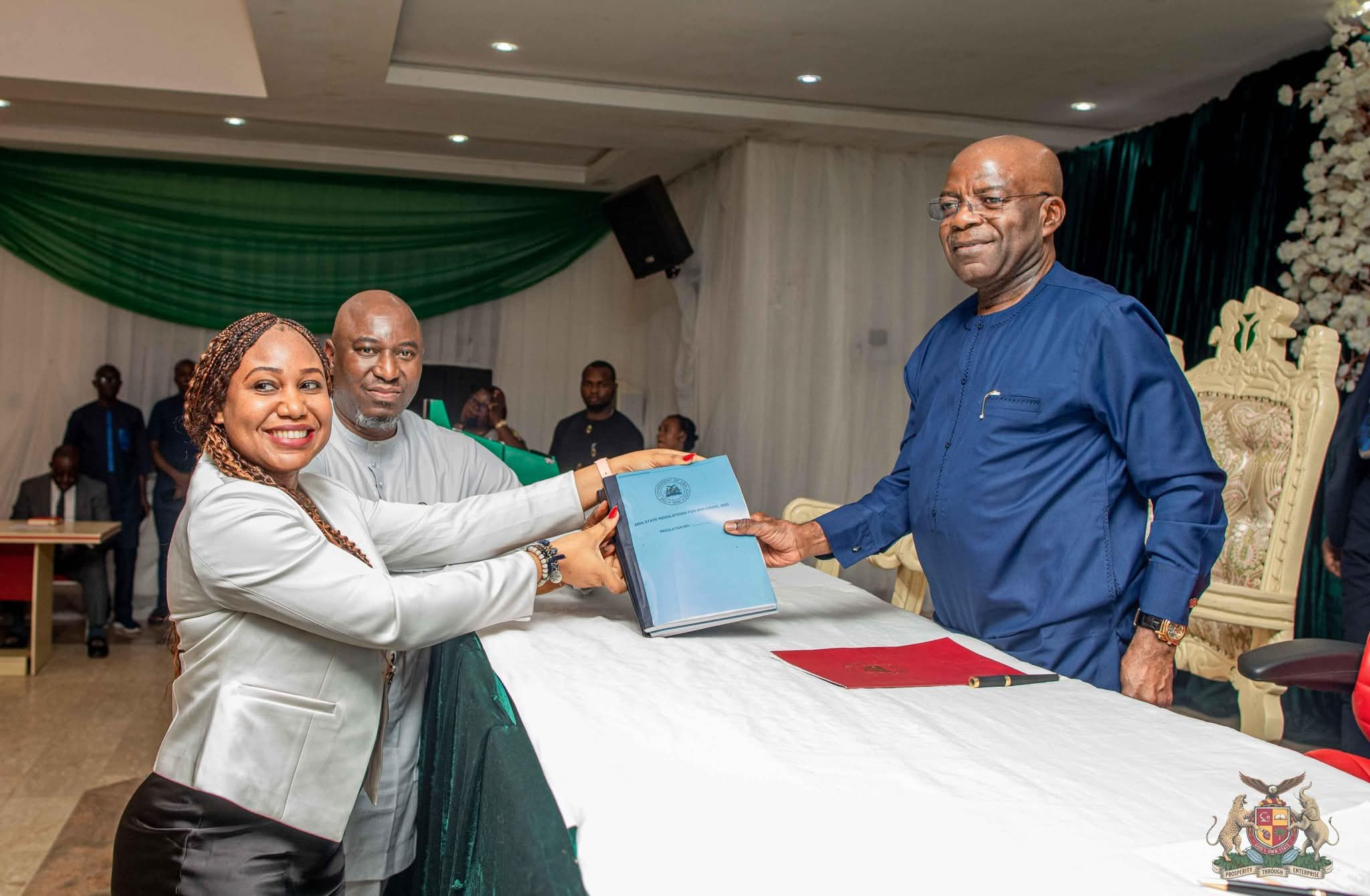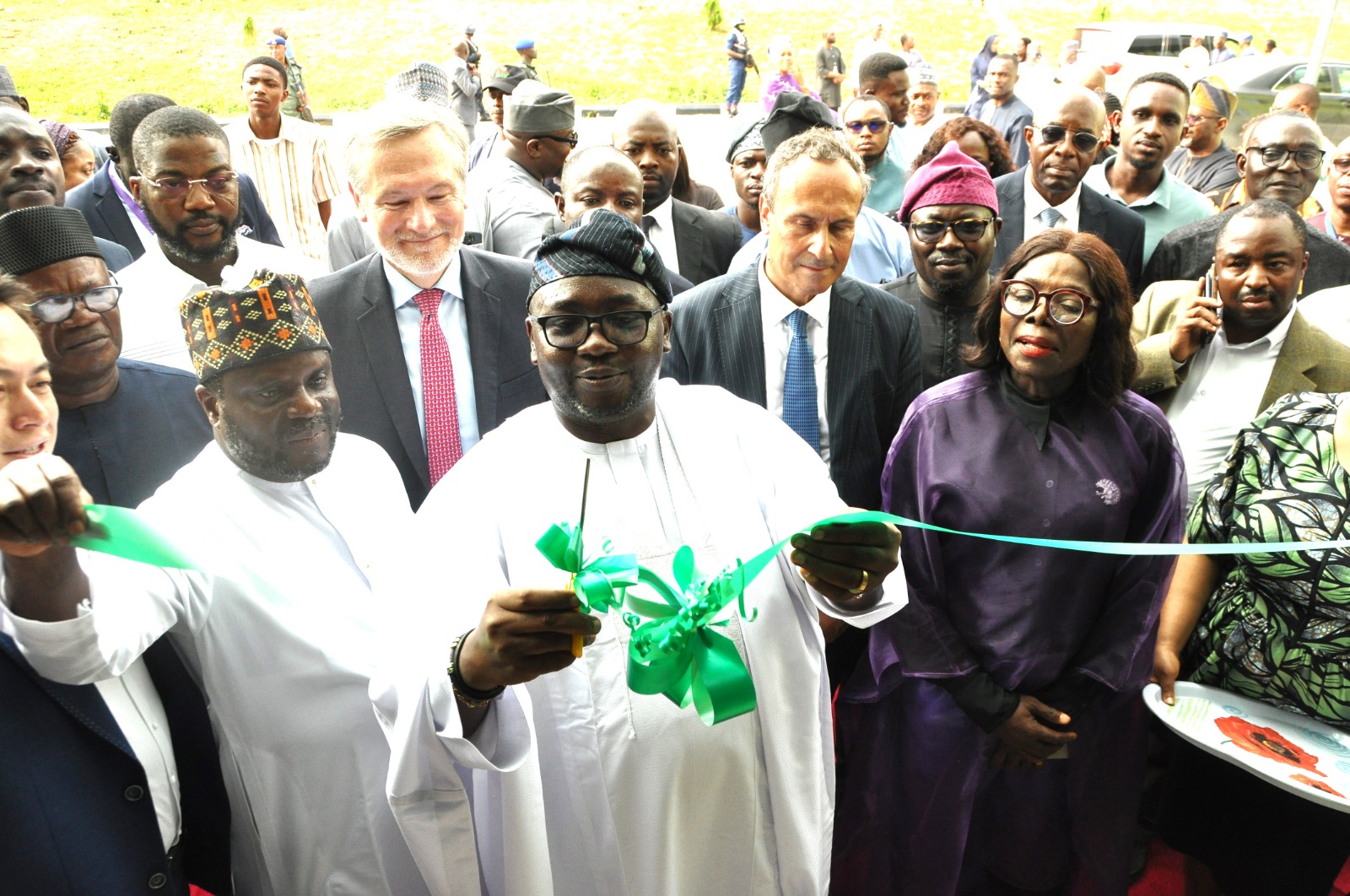In a significant development that has sent ripples through Nigeria’s political landscape, a Federal High Court in Abuja issued an interim injunction on Thursday, September 11, 2025, restraining former Senate President David Mark and former Osun State Governor Rauf Aregbesola from parading themselves as the National Chairman and National Secretary, respectively, of the African Democratic Congress (ADC). The court’s order also directed the Independent National Electoral Commission (INEC) to refrain from recognizing Mark, Aregbesola, or any individuals associated with them in these capacities until the hearing of a pending motion in the suit. This ruling comes at a time when Nigeria’s opposition parties are grappling with internal leadership battles, ahead of the 2027 general elections, highlighting the fragility of party structures in the country’s multi-party democracy.
The lawsuit, filed by Nafiu Bala Gombe, the former Deputy National Chairman of the ADC, challenges the legitimacy of the recent dissolution of the party’s previous National Working Committee (NWC) and the subsequent appointment of Mark and Aregbesola to top positions. Gombe, who positions himself as the authentic acting National Chairman, argues that the process leading to the leadership change was irregular and violated the party’s constitution as well as provisions of Nigeria’s electoral laws. This legal intervention not only freezes the power transition but also underscores the escalating factionalism within the ADC, a party that has historically struggled to consolidate its influence despite its pan-Africanist ideals.
The Genesis of the Crisis: ADC’s Leadership Shuffle
The African Democratic Congress, founded in 2002 as one of Nigeria’s registered political parties, has long been viewed as a potential alternative to the dominant All Progressives Congress (APC) and Peoples Democratic Party (PDP). With its roots in democratic socialism and a commitment to African unity, the ADC has fielded candidates in various elections but has often been hampered by internal divisions and limited electoral success. The party’s 99th National Executive Committee (NEC) meeting, held in Abuja earlier this year, marked a pivotal moment in its recent history. During this gathering, the NEC voted to dissolve the existing NWC, led by Chief Ralph Nwosu, citing the need for fresh leadership to revitalize the party’s fortunes.
Chief Ralph Nwosu, a seasoned politician and businessman from Imo State, had helmed the ADC since 2018, steering the party through a period of relative stability but also criticism for its underwhelming performance in the 2019 and 2023 general elections. Under Nwosu’s tenure, the ADC secured a handful of state assembly seats and local government positions but failed to make significant inroads at the national level. Dissatisfaction with this trajectory, coupled with pressures from influential stakeholders seeking greater visibility for the party, led to the dissolution vote. In the aftermath, David Mark was appointed as the interim National Chairman, while Rauf Aregbesola was named National Secretary.
David Mark, a retired army general and one of Nigeria’s most enduring political figures, brings a wealth of experience to the role. Elected to the Senate in 1999, Mark served as Senate President from 2007 to 2015, overseeing a period of legislative turbulence and reforms. His tenure was marked by controversies, including allegations of corruption and authoritarian leadership style, but he remains a respected elder statesman in Benue State and beyond. Mark’s entry into the ADC signals an attempt by the party to attract high-profile defectors from the PDP, where he had been a key player until recent years.
Rauf Aregbesola, on the other hand, is a technocrat-turned-politician whose career has been defined by both acclaim and adversity. Serving as Minister of Interior under President Goodluck Jonathan and later as Governor of Osun State from 2010 to 2018 under the APC, Aregbesola earned praise for infrastructure projects and educational reforms but faced backlash for his governance style, which some described as overly authoritarian. His defection from the APC in 2023, amid internal party squabbles, positioned him as a potential bridge-builder for opposition forces. Appointing him as National Secretary was seen as a strategic move to bolster the ADC’s administrative backbone and appeal to southwestern voters.
Following the NEC’s decision, INEC promptly updated its official records to reflect the new leadership, a step that legitimized Mark and Aregbesola’s positions in the eyes of the electoral body. This recognition was crucial, as INEC’s database determines which party officials can authorize nominations, conduct primaries, and engage in official party activities. However, this swift endorsement ignited a firestorm within the party’s ranks, with dissenting members, led by Nafiu Bala Gombe, decrying the process as a “coup” orchestrated by a cabal of influential figures.
Nafiu Bala Gombe’s Challenge: A Bid for Legitimacy
Nafiu Bala Gombe, hailing from Gombe State in northeastern Nigeria, has been a steadfast member of the ADC since its early days. As the former Deputy National Chairman (North), Gombe was positioned next in line for leadership following the dissolution of Nwosu’s NWC. In his suit, filed at the Federal High Court, Gombe contends that the NEC meeting was not properly convened and lacked the quorum required under the party’s constitution. He further alleges that the appointments of Mark and Aregbesola bypassed established protocols for electing or selecting national officers, rendering them null and void.
Gombe’s legal team argues that INEC’s premature recognition contravenes Section 85 of the Electoral Act 2022, which mandates that electoral bodies verify the internal processes of political parties before updating records. By granting the injunction, Justice [Name not specified in original, but typically a Federal High Court judge], the presiding judge, acknowledged the prima facie case presented by Gombe, emphasizing the need to maintain the status quo pending a full hearing. The motion on notice, already filed, seeks a perpetual injunction to permanently bar Mark and Aregbesola from the roles and compel INEC to revert to recognizing Gombe’s faction.
This factional split is not merely a personality clash but reflects deeper ideological and regional tensions within the ADC. Gombe represents the “old guard,” loyal to Nwosu’s vision of grassroots mobilization and anti-corruption advocacy. In contrast, the Mark-Aregbesola duo is perceived as an elite intervention, aimed at rebranding the party to attract funding and alliances from disaffected politicians across Nigeria. Gombe has publicly stated that his action is driven by a commitment to democratic principles, warning that unchecked leadership changes could erode public trust in the party’s commitment to transparency.
Legal Ramifications and INEC’s Role in Party Disputes
The Federal High Court’s intervention is a classic example of judicial oversight in Nigeria’s political arena, where courts frequently mediate intra-party conflicts. Under the 1999 Constitution (as amended) and the Electoral Act, political parties are required to adhere to their constitutions in electing leaders, and INEC serves as the arbiter of compliance. However, INEC’s decisions are not infallible; they can be challenged in court, as seen in numerous cases involving the APC and PDP over the years.
In this instance, the interim injunction effectively paralyzes the ADC’s national operations. Without recognized leadership, the party cannot convene congresses, endorse candidates, or access certain funds allocated by INEC for political activities. The electoral commission, headquartered in Abuja, has a history of navigating such disputes cautiously. For example, in the 2022 PDP primaries saga, INEC withheld recognition from certain factions until court rulings clarified the leadership. Here, INEC’s initial update of records—likely based on documents submitted by the NEC—has now been put on hold, forcing the commission to adopt a neutral stance until the motion is heard.
Legal experts suggest that the case could hinge on procedural technicalities, such as the validity of the NEC meeting’s notice, attendance records, and voting outcomes. If Gombe’s claims hold, it could lead to the reinstatement of Nwosu’s NWC or even a fresh election process. Conversely, if the court upholds the NEC’s authority, Mark and Aregbesola could resume their roles, potentially marginalizing Gombe’s faction. The hearing, expected within weeks, will likely involve witness testimonies from party officials and scrutiny of constitutional provisions.
This ruling also raises broader questions about INEC’s efficiency in verifying party submissions. Critics, including civil society groups like the Yiaga Africa network, have long advocated for stricter pre-recognition checks to prevent such post-facto litigations. In a statement following similar disputes, INEC’s Chairman, Professor Mahmood Yakubu, emphasized the commission’s commitment to upholding internal democracy, but resource constraints often delay thorough vetting.
Broader Implications for Nigerian Politics and the Opposition Landscape
The ADC’s internal strife occurs against a backdrop of Nigeria’s polarized political environment, where opposition parties are under pressure to unify ahead of the 2027 elections. President Bola Tinubu’s APC has consolidated power since 2023, implementing economic reforms that have sparked protests but also garnered support from business elites. In response, smaller parties like the ADC have sought to position themselves as viable alternatives, often by recruiting high-profile figures like Mark and Aregbesola.
David Mark’s involvement is particularly noteworthy. At 77, the former Senate President brings gravitas and a network spanning military, legislative, and business circles. His potential chairmanship could have elevated the ADC’s profile, attracting defectors disillusioned with the PDP’s internal woes under Atiku Abubakar. Similarly, Aregbesola’s administrative expertise might have streamlined party operations, especially in fundraising and campaign strategy. However, the court’s injunction disrupts this momentum, potentially weakening the ADC’s bargaining power in opposition coalitions.
For the opposition as a whole, this episode exemplifies the challenges of coalition-building. The Labour Party’s 2023 surge under Peter Obi demonstrated the appeal of third-force politics, but sustaining unity requires stable leadership. The ADC, with its modest structure—boasting membership in over 20 states but limited national presence—risks fragmentation if the dispute escalates. Regional dynamics add another layer: Gombe’s northern base contrasts with Mark’s Middle Belt influence and Aregbesola’s southwestern roots, potentially fueling ethnic undertones in the conflict.
Moreover, this case could set a precedent for how courts handle party leadership tussles. In recent years, judicial interventions have resolved disputes in parties like the APC (e.g., the 2022 Edo State chapter crisis) and APGA, often favoring procedural adherence over expediency. If the ADC’s matter drags on, it might delay the party’s congresses, scheduled for late 2025, impacting its ability to field competitive candidates.
Economically, Nigeria’s ongoing challenges—inflation above 30%, naira depreciation, and insecurity—amplify the stakes. Opposition parties like the ADC have criticized Tinubu’s administration for policy inconsistencies, positioning themselves as advocates for the masses. A leadership vacuum could blunt this narrative, allowing the APC to dominate the discourse.
Reactions from Stakeholders and the Path Forward
While direct quotes from the principals were not immediately available, sources close to the parties expressed dismay. An aide to David Mark described the injunction as “unfortunate but temporary,” vowing to comply while preparing a robust defense. Rauf Aregbesola’s camp echoed this sentiment, highlighting the former governor’s commitment to the ADC’s growth. Nafiu Bala Gombe, in a brief media interaction, hailed the ruling as a victory for democracy, urging party members to unite under legitimate leadership.
Civil society and political analysts have weighed in as well. The Centre for Democracy and Development (CDD) warned that protracted litigations erode voter confidence, calling for INEC to expedite guidelines on party leadership verification. Prominent commentator, Dr. Jide Ojo, noted in a recent op-ed that “such infightings are the opposition’s self-inflicted wounds, playing into the ruling party’s hands.”
Looking ahead, the ADC faces a critical juncture. The pending motion hearing could resolve the impasse, but reconciliation efforts—perhaps mediated by elder statesmen or INEC—will be essential. If the party emerges stronger, it could carve a niche in the 2027 polls; otherwise, it risks irrelevance. For Mark and Aregbesola, this setback tests their resilience in a political career marked by highs and lows.
In conclusion, the Federal High Court’s injunction against David Mark and Rauf Aregbesola’s ADC roles is more than a legal technicality—it’s a microcosm of Nigeria’s turbulent democracy. As factions vie for control, the nation watches to see if the ADC can navigate this storm, reinforcing the adage that in politics, unity is not just strength but survival. The coming weeks will be pivotal, not only for the party but for the broader opposition’s quest to challenge the status quo.


